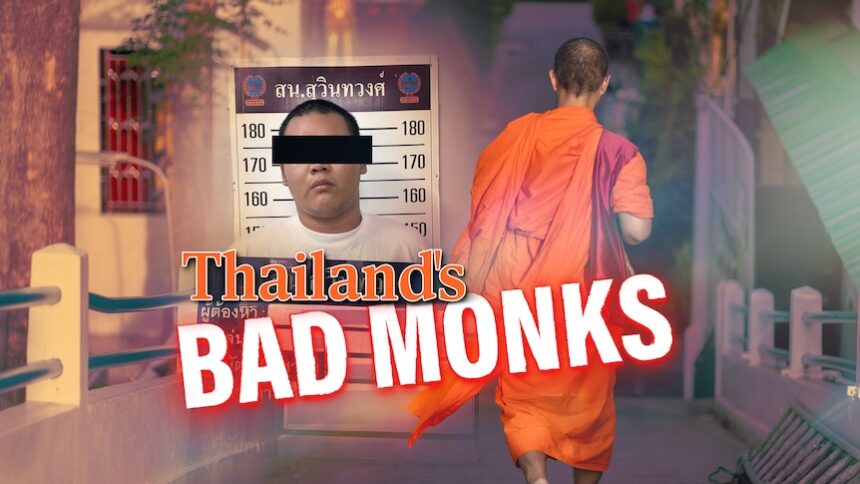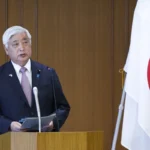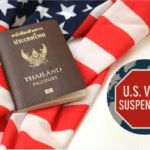CHIANG RAI – In Thailand, where the sight of saffron robes brings to mind the values of purity and Buddhism shapes everyday life, recent scandals have shaken public confidence in the monkhood.
Reports of misconduct by high-ranking monks, from illicit affairs to misuse of donations, have cast a shadow over an institution respected by most Thais.
The most recent case, involving abuse of power, financial wrongdoing, and criminals hiding behind monks’ robes, has pushed officials to take action to restore the image of the clergy, which remains central to Thai society.
Since mid-June 2025, headlines have focused on Wilawan Emsawat, also known as “Ms Golf” or “Sika Kor”, who was arrested for reportedly seducing and blackmailing close to 20 senior monks.
The matter came to light when Phra Thep Wachirapamok, a well-known abbot from Wat Trisossathep in Bangkok, left the monkhood unexpectedly.
Investigators found that Ms Emsawat formed romantic ties with senior monks, gathering more than 80,000 compromising images and videos to extort millions of baht over three years, mainly spent on online gambling. Police estimate the total at about 385 million baht (around $18.2 million).
At least nine senior monks, including abbots, have lost their positions, with some, like Phra Khru Siriwiriyathada from Wat Sothon in Chachoengsao, disappearing to avoid facing the public. The incident exposed not only breaches of vows but also the misuse of money donated for religious purposes.
Some monks admitted to moving temple funds to meet Ms Emsawat’s demands, raising eyebrows among authorities.
Paiwan Wannabud, a former monk and now an LGBT advocate, commented, “I have never seen such a scandal before.” He noted that power and money can tempt anyone, regardless of their position.
Social media has lit up with strong reactions, with many questioning whether to continue supporting temples. One post read, “Next time, I’ll give to a hospital or a school, not a temple,” showing how trust is falling.
Financial Misconduct Challenges Sacred Values
The recent scandal adds to a growing list of financial crimes involving Thai Buddhist leaders. In May 2025, Abbot Phra Thammachiranuwat from Wat Rai Khing was arrested for allegedly taking more than 300 million baht (about $9 million) from temple funds and linking it to illegal gambling.
At Wat Pa Thammakhiri in Nakhon Ratchasima, investigators found bags of cash and gold bars buried near the temple, connected to a 12 million dollar scheme led by Phra Khom and his team.
Such cases shed light on the lack of oversight in temple finances. With about 280,000 monks across Thailand depending on donations, temples reportedly receive around $2.8 billion every year.
Yet, little transparency exists, letting some abbots build private fortunes under the veil of spiritual duty. One monk’s family found over 10 million baht under his bed after his death. This raised fresh concerns over how donations are handled.
Danai Preechapermprasit, a Buddhism expert at Thammasat University, explained that these incidents shake people’s faith deeply. He told AFP, “People wonder whether their donations support religion or personal gain.”
Stories like that of Camphun Parimiphut, a 52-year-old security guard who now gives food instead of cash, show that frustration is common and calls for reform are growing louder.
Monkhood Used as a Hideout
Thailand’s temples have also become a refuge for those trying to avoid prosecution. Because it is easy to join the monkhood and there are few checks, it is not hard for someone to slip into the monkhood and avoid further scrutiny.
Katewadee Kulabkaew, who studies Buddhist politics, told VICE that most temples lack firm controls to weed out troublemakers.
Well-known examples include Wirapol Sukphol, who in 2017 made headlines when a video showed him enjoying luxury on a private jet before facing charges of sex crimes, fraud, and money laundering. In 2022, one temple in Phetchabun had every monk arrested after a drug bust.
More recently, a disgraced police officer became a monk following a fatal accident, a move many viewed as an attempt to escape responsibility.
Accurate numbers are unknown, but experts agree it is a persistent problem. The Supreme Sangha Council’s structure, which mirrors Thai bureaucracy, makes it difficult for junior monks to report wrongdoing. As religious scholar Suraphot Thaweesak put it, younger monks often remain silent out of fear of being punished.
Crackdown and Steps Toward Change
Facing public backlash, authorities have moved to address the crisis. Acting Prime Minister Phumtham Wechayachai ordered a review of laws on the monkhood and temple management, highlighting the need for financial accountability.
The National Office of Buddhism has suggested bringing back draft laws that would introduce criminal charges for actions that damage the religion, including sexual offences.
The Central Investigation Bureau (CIB), led by Pol Maj Gen Jaroonkiat Pankaew, has set up a Facebook hotline for complaints about monk misconduct and promised fresh investigations across Thailand.
“We will check on monks nationwide,” said Jaroonkiat, adding that he expects significant changes.
A core part of these efforts is a countrywide check on monks’ identities to catch imposters and fugitives. Temples in provinces like Phichit, Phetchabun, Khon Kaen, and Samut Sakhon are now under examination, with police and religious leaders working to confirm monk status.
King Maha Vajiralongkorn has also revoked titles from over 80 monks for “inappropriate behaviour” before his 73rd birthday, showing that even the palace is involved.
The Decline of Trust and Respect
These scandals have left a lasting mark on the monkhood’s image. According to Preechapermprasit, temples are no longer viewed as the respected places they once were.
Many Thais, such as Mongkol Sudathip, a 33-year-old motorbike taxi driver, openly say they no longer fully respect monks. Social media is filled with complaints about “hypocrisy” and “dishonesty” among the clergy. One post described the monkhood as “rotten to the core”.
The fallout is more than just lost respect. Monks, once seen as moral guides, now face suspicion in public spaces. “In Thailand today, many monks feel unwelcome in the street,” Preechapermprasit noted. Still, some people hold on to their faith in Buddhism itself.
Camphun Parimiphut said, “You can lose trust in monks, but never in Buddhist teachings.”
The ongoing crisis has spurred calls for meaningful change. Academics such as Prakirati Satasut from Thammasat University say the answer lies in openness and responsibility. “People need to see the truth so their doubts about the Sangha can be settled,” she said. Suggested fixes include making donation records public, tightening checks on new monks, and putting more controls on temple money.
But some warn against blaming women like Ms Emsawat for the problems. Columnist Sanitsuda Ekachai argued in the Bangkok Post that women have long been unfairly blamed, while monks who broke their vows escape focus.
She believes targeting women distracts from deeper issues like corruption and greed among clergy.
As the CIB pursues its inquiries and the National Office of Buddhism pushes for legal changes, Thailand stands at a crossroads. The monkhood, a cornerstone of Thai life for centuries, must address its failings if it hopes to regain public trust.
For now, Thais look on, divided between respect for tradition and the growing call for honesty and change.














